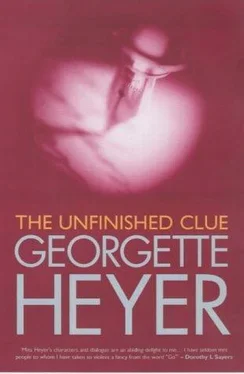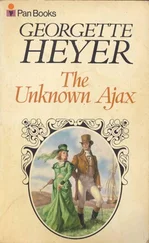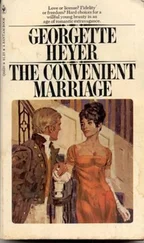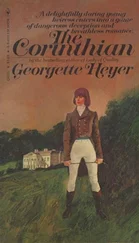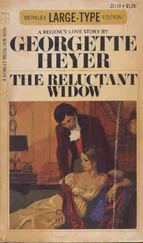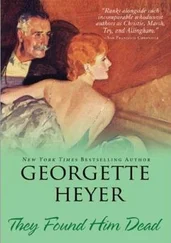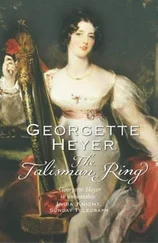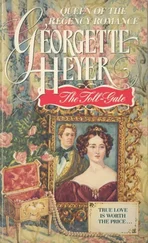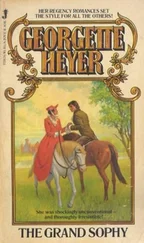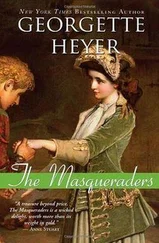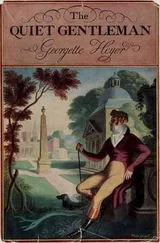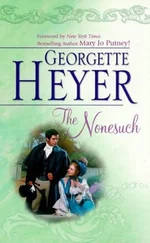She came in now in her graceful, assured way, and shook hands with Fay, saying lightly: "I am so glad that I'm not late after all. I am told that every clock in my house is wrong, so I feared I might arrive to find you at dinner. How do you do, Arthur?"
"You remember Mr. Guest, don't you?" Fay said.
"Yes, perfectly," replied Mrs. Twining, smiling at him. "He told me a great deal that I didn't know about the western States."
"I hope I didn't bore you?" said Stephen, rather conscience-stricken.
Mrs. Twining sat down in a bergere chair, letting one hand rest upon its arm. "No. You interested me, Mr. Guest. Till then my knowledge of that part of the world had all been culled from various films it has been my misfortune to see. I never felt that they were really reliable."
The entrance of the Hallidays and Dinah interrupted Stephen in his assurance that the films Mrs. Twining had seen were probably quite inaccurate. Francis came in a minute later, looking rather sleeker than before, and Sir Arthur began — while his wife performed introductions to hand round cocktails. He took up a commanding position in front of the empty grate, when Francis relieved him of this duty, and set the ball of conversation rolling by remarking that it didn't look as if they were going to get any rain yet; he didn't know about Julia's garden, but his own wanted it badly.
Every one had some contribution to make on this subject, from Camilla, who begged Sir Arthur not to wish for rain till Monday, to Stephen Guest, who observed that the country needed it.
Geoffrey slipped guiltily into the room in the middle of this discussion, but if he hoped to make his tardy entrance unnoticed he was disappointed. His father stood facing the door, and said in a bluff voice, through which lay an unmistakably threatening undercurrent: "A trifle late, my boy, aren't you? We were ready to receive our guests in my young days."
Geoffrey coloured angrily. It was just like Father to treat him as though he were a schoolboy in front of a roomful of people. He mumbled: "Sorry!" and walked over to the cocktail tray.
Sir Arthur said sharply: "Good God, sir, where have you left your manners? Say how do you do to Mrs. Twining!"
Geoffrey grew redder than ever. "I didn't see you, Aunt Julia. How do you do?"
Mrs. Twining patted a chair beside her. "Come and sit down, Geoffrey. It seems a long time since I saw you. I hear you are engaged to be married?" Something between a snort and a scornful laugh from the General made her turn her well-coiffed head. "I beg your pardon, Arthur?" she said smoothly.
"Time enough to talk of being married when he's done cutting his second teeth," said the General, moving away towards Camilla.
"The Reverend and Mrs. Chudleigh," announced Finch from the doorway.
The Vicar and his wife came in.
The Rev. Hilary Chudleigh was a man of late middle age, with a gentle austere countenance, and a permanent stoop to his shoulders. He had been vicar of the parish for only four years. The best years of his life had been spent working in the worst slums imaginable, and it was only when his health at last cracked that he consented to accept a living in the country. He was not really fitted to be a country vicar, for he disapproved of fox-hunting and pheasant-shooting, and was not at all fond of social intercourse. The General said that he was a namby-pamby fellow with a bee in his bonnet. The Vicar said, sadly but with conviction, that the General was living in sin. If it had not been for the arguments of his wife, and the advice of his very tactful bishop, Mr. Chudleigh would never have set foot inside the General's house. He did not recognise divorce. This, not unnaturally, was apt to produce a somewhat strained atmosphere on the rare occasions when, in duty bound, he visited the Grange. He had tried once to bring Sir Arthur to a realisation of his error. The result had not been happy, and it had taken six months to heal the breach. Left to himself, the Vicar would never again have approached Sir Arthur, but he was not left to himself. His bishop came to lunch one day, and was more tactful and persuasive than ever. The Rev. Hilary, who was growing old and rather tired, saw that the situation was too difficult for him to cope with. The bishop apparently recognised divorce and remarriage, and the bishop pointed out that Sir Arthur was not only one of the more influential landowners in the district, but a churchwarden as well. It seemed one could not ostracise rich men who occupied front pews every Sunday, contributed to the church restoration funds, and took leading parts in parochial meetings.
So he gave way, troubled in his conscience, and at least three times a year he and his wife dined at the Grange. It was certainly a little unfortunate that one of these dinners should occur when Miss de Silva was in the house. It annoyed the General very much to think that the Rev. Hilary (who had the impertinence to condemn his morals) was to be brought face to face with the abominable young woman Geoffrey had had the affrontery to bring down to the Grange. Lola would give the fellow a fine handle; she would give Mrs. Chudleigh something to talk about too, for weeks to come.
Mrs. Chudleigh was engaged at the moment in shaking hands with Fay, and explaining how she feared they might be a little late on account of their having walked up from the vicarage this lovely evening. She was a thin woman of about fifty, with a weather-beaten complection, and hair of that pepper-and-salt variety that might in her youth have been almost any colour. Kindly people said that she must have been pretty once, but she had not worn well, and did nothing now to improve her appearance. She wore pincenez, despised face powder and curling-tongs, and had a genius for acquiring frocks made according to the last fashion but one. Her weak sighted eyes had a trick of peering, which gave her an inquisitive air, and she had a voice that had probably, in her girlhood, been a childish treble, and had become, in the process of time, merely sharp.
Both she and her husband refused cocktails, but the Vicar accepted instead a glass of sherry, remarking to Dinah that he had never learned to like the modern apperitif. His mild gaze travelled to Camilla, who was talking to Francis, and had given vent to her rather empty laugh. He blinked a little, as well he might, for the pink sequins sparkled dazzlingly as the light caught them, and inclined his head a little towards Dinah. "I am afraid I did not catch that lady's name," he said apologetically. "My wife tells me that it is quite a tiresome failing of mine, but I am a little deaf, you know."
"I think most people mumble introductions," replied Dinah. "That is Mrs. Halliday."
"Ah, indeed?" The Vicar looked at Camilla with renewed interest. "I knew a Halliday once. A dear fellow; we were at Lincoln together. But I dare say he would be no relation."
The sound of the grandfather clock in the hall striking the hour penetrated to the drawing-room. The General consulted his wrist-watch, as though to verify it.
"You see, we were not late after all, Hilary," said Mrs. Chudleigh, with an air of self-congratulation.
Dinah slipped unobtrusively towards Geoffrey, who was standing moodily behind Mrs. Twining's chair. "If you don't want Arthur to start making gobbling noises, go and hurry your betrothed," she said in an urgent undertone.
Geoffrey spoke from a wider experience of Lola. "She's always late," he said simply.
Mrs. Twining turned her head. Her cool grey eyes held a gleam of amusement. "Of course!" she said softly. "Gobbling noises!"
Dinah blushed. "You weren't meant to hear that, Mrs. Twining. But he does, you know."
"He always did," replied Mrs. Twining. "Geoffrey, my dear, I really think you would be wise to take Dinah's advice. Already this party seems to me to be showing signs of wear."
Читать дальше
